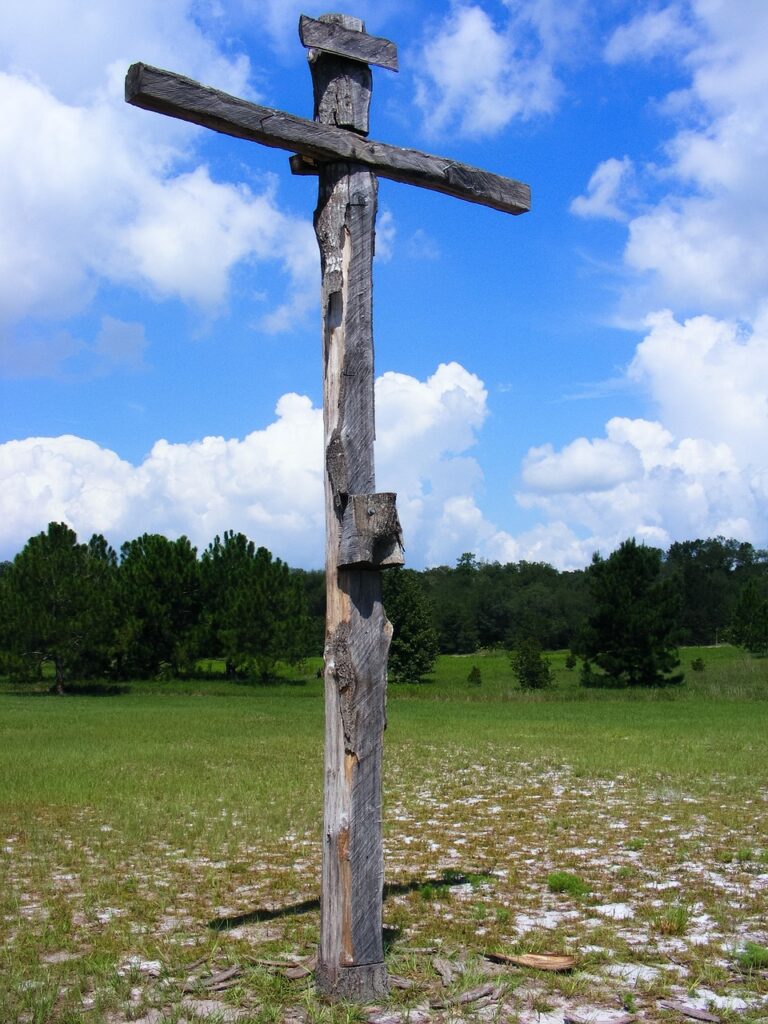When the previous Slovak Minister of Tradition Marek Mad’arič (2006-2010, 2012-2018) was requested in a podcast for Slovak information day by day Denník N how he assessed new tradition chief Martina Šimkovičová’s first 12 months within the put up, his reply was quite diplomatic. ‘It’s an disagreeable shock’, he mentioned (referring to a quote by Prime Minister Robert Fico, who beforehand described her tenure as ‘a nice shock’). However for those who have been to ask most members of Slovakia’s cultural neighborhood in regards to the current actions of the Ministry of Tradition, you’d most likely get a a lot sharper and fewer tactful reply.
In truth, it will not have shocked anybody if Mad’arič had adopted a harsher tone, as a result of it’s the cultural reforms launched throughout his lengthy tenure within the ministry that at the moment are beneath biggest assault. Throughout his time in workplace, he helped set up the Arts Council and the Audiovisual Fund, cultural funds which have contributed considerably to the event of impartial tradition in Slovakia. He additionally consolidated the important thing establishments of established tradition, elevating the status of public tv and radio and constructing public belief. Inside a 12 months of Šimkovičová’s arrival, nonetheless, all this was historical past. How did this occur?
From disinformation mouthpiece to tradition tsar
Šimkovičová, a nominee of the nationalist celebration SNS (Slovak Nationwide Get together), raised issues amongst Slovakia’s cultural neighborhood instantly after her appointment as minister of tradition. She was picked for the put up by Prime Minister Robert Fico following his return to energy in September 2023 on the head of a coalition with the social democratic celebration Hlas and the SNS, which solely narrowly made it into parliament (the quorum of 5 per cent was exceeded by solely 0.6 per cent).
Professionally, Šimkovičová’s solely relationship to tradition was by her work as a bunch on non-public tv; she had no expertise in managing impartial or state cultural organizations.
Šimkovičová affirmed her far-right nationalist credentials in her very first public look as tradition minister, declaring that ‘Tradition must be Slovak and no different’. She then cancelled a subsidy scheme to assist the combat in opposition to misinformation.
Martina Šimkovičova, 2024. Picture by Matica slovenská (Slovak nationwide, cultural and scientific group) through Wikimedia Commons
She additionally sparked outrage with an interview during which she declared that ‘the white race is dying out due to LGBTQ’, and threatened to stop folks from the queer neighborhood from receiving state assist. ‘LGBTQ+ NGOs is not going to get a single cent from the state funds,’ she mentioned. In November 2024, she made good on that promise: the printed outcomes of the Ministry of Tradition’s subsidy programme for deprived teams present that the ministry has excluded tasks by LGBTQIA+ organizations altogether. None of their tasks or long-running occasions – such because the Drama Queer Competition, Rainbow Pleasure or the Otherness Movie Competition – acquired a grant, regardless of receiving enough factors from the knowledgeable committee that assessed the tasks.
Šimkovičová was joined on the ministry by Lukáš Machala, the director-general of the ministry’s service (additionally an SNS nominee), who is thought for his antisemitic statements and his inclination in direction of conspiracy theories (he has earned public ridicule by claiming that the Earth is flat). Machala has turn into the de facto head of the Ministry of Tradition and is the engine behind most of its strategic selections.
Establishments as ideological instruments
Whereas observers continuously describe the actions of the Ministry of Tradition as unsystematic, there’s a sure logic obvious in its behaviour. The ministry’s first goal was cultural establishments, particularly the funds that distribute monetary assets for cultural manufacturing. In the middle of 2024, the Nationwide Council of the Slovak Republic has adopted new legal guidelines on the Arts Council and on the Audiovisual Fund, each of which have been drafted by the Ministry of Tradition. These legal guidelines regulate the exercise of the funds in such a manner that the decisive energy within the matter of whether or not or not particular person candidates or tasks are granted monetary assist is now vested within the boards of the funds.
Each legal guidelines additionally stipulate that no assist might be granted with out the approval of the members of the boards elected by the tradition minister. Briefly: impartial funds, during which knowledgeable committees used to resolve on the allocation of subsidies, are being remodeled into an instrument by which to implement ‘ideological compatibility’, i.e. making certain that tasks align with the federal government’s right-wing and conservative views. On the time of writing, the board of the Arts Council is eradicating consultants from commissions, rendering them dysfunctional, and the redistribution of funding for cultural tasks is beneath risk.
In July, public tv and radio got here into the firing line. Right here the ministry additionally took management by authorized trickery by altering the establishment’s title from RTVS (Radio and Tv of Slovakia) to STVR (Slovak Tv and Radio). It thus de facto turned a brand new establishment, which meant that its director routinely turned redundant (to this point, he has not been changed; Slovak tv has been working in disaster mode for greater than half a 12 months).
Whereas prior to now, members of the STVR Council have been nominated by skilled organizations, the brand new regulation on STVR permits the Ministry of Tradition to nominate three members of the council straight. Because the variety of council members has now been diminished from 9 to seven, the federal government controls nearly 50 per cent of its composition. This raises issues of undue political affect over the council’s decision-making and its lack of independence. The brand new regulation additionally establishes an exterior ethics fee, which is to incorporate representatives of the nationalist group Matica Slovenská, church buildings and native governments. The unprofessional nature of this fee, with just one member having a media background, raises fears of ideological management and censorship.
This has already been mirrored within the type of the programmes broadcast. The nation’s essential political speak present O 5 minút 12 (‘5 Minutes to 12’) changed three presenters after authorities politicians branded them unsuitable. Then there was the case of stories journalist Barbora Šišoláková, who left STVR after the channel’s administration tried to affect the content material of a essential report she had ready on Minister of the Surroundings Tomáš Taraba for Správy, the community’s flagship information present. The creator of this text, who labored on the content material manufacturing staff of a present affairs TV dialogue present, additionally skilled these modifications in administration: the programme was rebranded as a journey present, main him to finish his cooperation with STVR.
Director? Dismissed!
These radical modifications to the functioning of establishments have taken place not solely at legislative and structural ranges however have additionally been accompanied by purges of ‘unsuitable’ personnel, particularly these on the head of flagship cultural establishments. As early as January 2024, Jen Kratochvíl, the director of the Kunsthalle Bratislava artwork gallery, was compelled to resign by the Ministry of Tradition (all the establishment was subsequently transferred to the administration of the Slovak Nationwide Gallery however has had its funding revoked, successfully shutting it down). In March, Zuzana Liptáková was dismissed from her place as director of BIBIANA, the worldwide home of artwork for youngsters, and Katarína Krištofová was dismissed from her place as director of the Slovak Nationwide Library.
Bigger, extra emblematic establishments adopted in August and September. The director of the Slovak Nationwide Theatre Matej Drlička, the director of the Slovak Nationwide Gallery Alexandra Kusá and the director of the Slovak Nationwide Museum Branislav Pánis have been successively faraway from their posts. All of those dismissals befell with out clear justification and have been usually accompanied by an unprofessional and humiliating method on the a part of the ministry (an official accompanied by safety guards delivered the discover to Drlička’s dwelling early within the morning, whereas he was nonetheless in his pyjamas). Folks missing the required {qualifications} and with out the assist of the establishments’ employees or the cultural neighborhood have been then appointed to the posts of the dismissed administrators, with out a clear choice process.
Soiled techniques
The personnel modifications have been accompanied by quite a few verbal assaults, bullying and intimidation of cultural staff by the Ministry of Tradition. These practices are additionally happening contained in the Ministry itself, the place, as Jana Močková writes for Denník N, there’s ‘everlasting concern, paralysis, threats, chaos, impulsive selections, no arguments’. Šimkovičová and Machala have adopted an unacceptable methodology of communication that’s primarily based on threats, insults, assaults and intimidation. Workers are bullied for holding ‘incorrect’ political beliefs, are compelled to maintain their workplace doorways open and are even threatened with the deployment of the SIS (the Slovak intelligence service) to watch them.
The deteriorating working circumstances and focused dismissals on the Ministry of Tradition have additionally been highlighted by commerce unionists. In a letter to Machala, they describe the job cuts as deliberate. In addition they point out office bullying and violations of the rules of the civil service. In keeping with statements by employees, nearly half of the ministry’s officers have already misplaced their jobs.
The ministry’s management can be participating in widespread assaults on members of the broader cultural neighborhood, in addition to tasks that it’s making an attempt to painting within the eyes of the general public as corrupt, nugatory and unworthy of assist. The queer artist Andrej Dúbravský, whose works have been hanging within the foyer of the Slovak Radio constructing, and famend dancer Soňa Ferienčíková (the companion of the chief of the nation’s political opposition) have each been subjected to vulgar insults from Šimkovičová. In some circumstances these assaults have even taken a authorized character: in September, Šimkovičová filed a prison grievance in opposition to the author Michal Hvorecký, accusing him of defamation for describing her as a fascist in an opinion piece in Denník N in October , whereas the artist Ilona Németh was referred to as in for questioning by the police for her participation within the creation of a petition calling for Šimkovičová’s dismissal.
Solidarity strikes
In fact, representatives of tradition haven’t remained silent within the face of those barbaric measures. In February, the Open Tradition! civic platform was fashioned, with the intention of uniting the cultural neighborhood in Slovakia and pushing for skilled administration of the tradition division, higher working circumstances and the creation of a contemporary cultural coverage. It’s a nationwide initiative, which on the time of writing brings collectively nearly 400 establishments and nearly 2,000 artists throughout Slovakia. The initiative is a direct follow-up to the ‘Open Name for the Resignation of the Minister of Tradition Martina Šimkovičová’, a petition printed on 17 January 2024 and closed on 26 January 2024, which was signed by greater than 180,000 folks (one other related petition, this time organized by civil society, collected nearly 200,000 signatures in August this 12 months).
Open Tradition! has organized a variety of public protest occasions this 12 months, with 1000’s of individuals collaborating. The most important of those, in August 2024, noticed nearly 10,000 folks collect in Bratislava – a sign that protests free of charge and impartial tradition are of curiosity not solely to the skilled cultural neighborhood but additionally to most of the people.
The initiative can be developing with varied progressive types of protest – for instance, in the summertime it organized the so-called Slovak Cultural Rebellion (a reference to the Slovak Nationwide Rebellion, during which Slovakia fought in opposition to fascism throughout World Struggle II), a relay protest during which pairs of individuals from the cultural scene stood in entrance of the Ministry of Tradition with a protest banner and took turns in one-hour intervals for ten days with out a break.
Nevertheless, the largest protest motion to be organized by Open Tradition! was the declaration of the Cultural Strike in September. The initiative at the moment has three primary calls for: 1) a halt to all deliberate and damaging modifications within the Ministry of Tradition and handle it in an expert and competent method; 2) stop to ‘ideological censorship with financial ’ (i.e. politically motivated funding selections) within the cultural sector; 3) the rapid monetary stabilization of the sector, with an emphasis on bettering staff’ pay and their social safety.
Of their first public look, the representatives of the motion outlined that the preliminary section of the Cultural Strike entails placing the cultural sector on a common alert, during which work will proceed uninterrupted. If, nonetheless, the workers in a given group really feel that their financial, social and cultural rights are being infringed to such a level that there are respectable grounds for happening full strike, the Cultural Strike Committee will encourage the employees of that establishment to take motion. The remainder of the cultural neighborhood will embark on a solidarity strike, manifested by varied gestures of assist and fundraising for these employees on full strike. In simply over a month because the announcement of the Cultural Strike, almost 4,000 folks working in over 400 state-funded and impartial organizations throughout the nation have joined the motion.
It also needs to be famous that the Open Tradition! initiative doesn’t focus solely on protest actions but additionally supplies authorized help, knowledgeable consultations and, most significantly, screens and publicizes all incompetent actions taken by the Ministry of Tradition. In October, it additionally printed an intensive 80-page report on the ministry’s failures, which maps the occasions of the previous 12 months in nice element.
Seeking optimism
When writing in regards to the scenario dealing with tradition in Slovakia, it’s unimaginable – and this text is proof of that – to keep away from a sure, maybe prolonged, enumeration of all of the blunders of the present authorities. There have been so many authoritarian and undemocratic measures taken by the Ministry of Tradition (but additionally many different representatives of the federal government, particularly the nationalist SNS celebration) that it is just when they’re added collectively that the horrifying and sometimes absurd nature of what the cultural scene in Slovakia is experiencing turns into obvious. Daily there’s information of somebody within the cultural sector dropping their job, of somebody being sued, of somebody being denied state assist, of an artist being brutally attacked.
The ambiance within the cultural sphere is, euphemistically talking, tense. Individuals are starting to concern, not just for their jobs but additionally for his or her security – which isn’t shocking, provided that we stay in a rustic the place lately two folks from the LGBTQIA+ neighborhood have been murdered and a journalist and his fiancée have been assassinated. I personally see the foundations for self-censorship starting to type in folks, the debates about whether or not it’s respectable to even ask for assist for cultural manufacturing from a state that treats its residents on this manner. The prevailing view is that that is, sadly, solely the start, and the federal government’s actions within the cultural sphere will solely turn into extra aggressive.
On this gloomy temper, nonetheless, the constructive facets of the entire scenario additionally come to the floor. Essentially the most hanging is the emergence of the mentioned Open Tradition! initiative, which represents solidarity between artists and establishments throughout generations, areas and totally different types of artwork. Nevertheless, solidarity shouldn’t be restricted to this initiative; it’s also seen at a decrease, interpersonal degree between particular person artists, journalists, media and establishments. Constructing this community of solidarity, though tough and sometimes tedious, is a prerequisite for constructing a stronger civil society which, someday, when the authoritarian regime of the present authorities is gone, can be a very good constructing block for establishing a extra democratic and open society. For Slovakia’s cultural sphere, it’s important to carry on to this hope.









